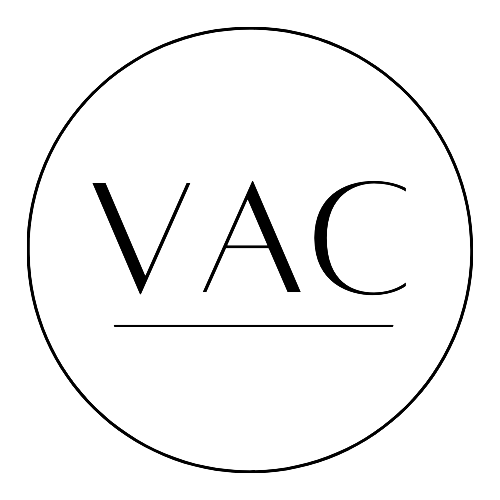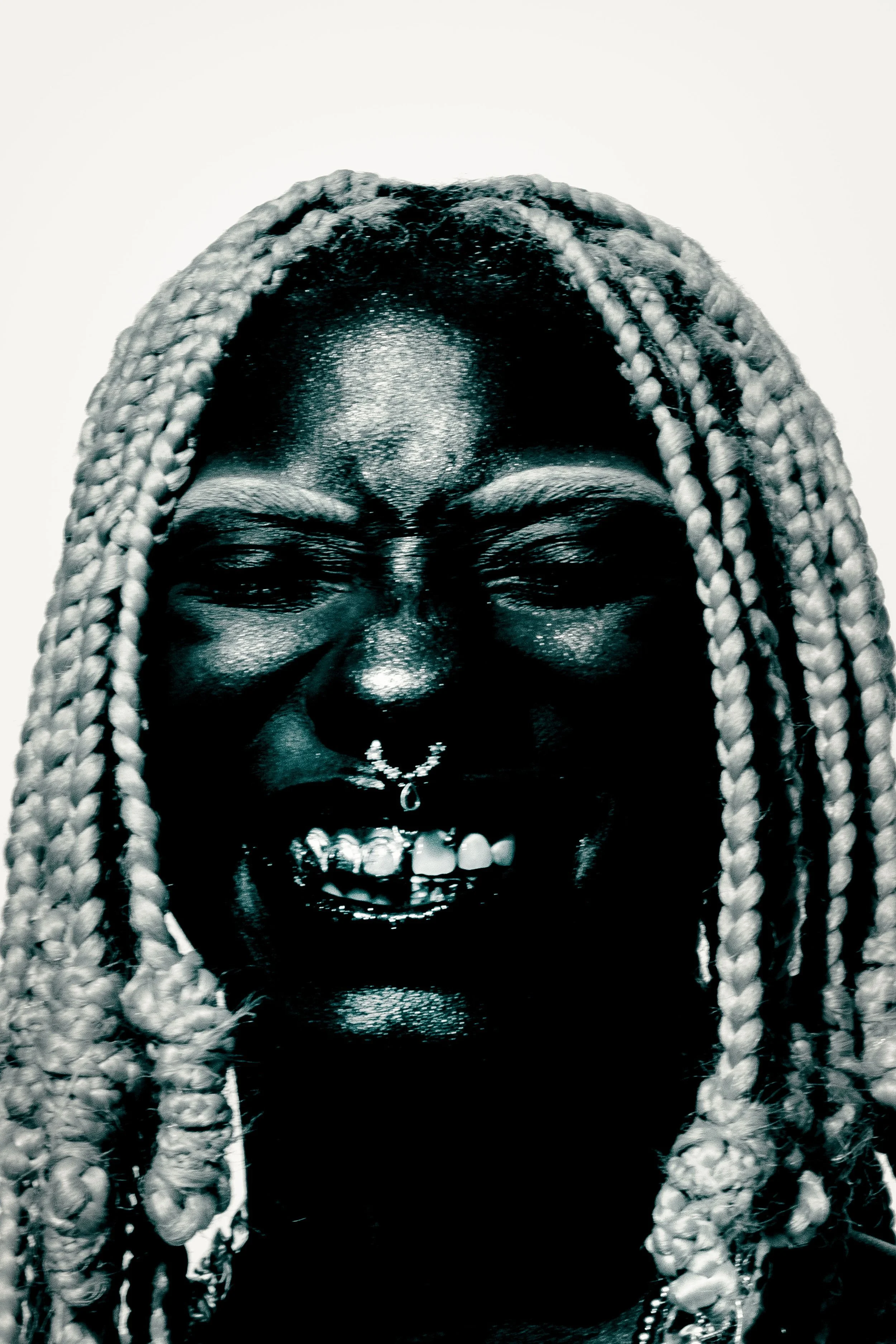Wisdom Warner: An Iconic Vision
Wisdom Warner is an Atlanta based photo artist and creative director. Warner’s contemporary photography focuses on black expression and the individualism of each of his subjects, often referencing religious and urban iconography.
How did your creative journey begin?
I don't believe that creativity begins at a certain stage in life, it's more of a way of figuring things out with limited resources. But for better reference, when I was about 3 years old, I distinctly remember Legos being the vehicle for my creative expression. I would create structures, vehicles, and what I believed to be energy-source prototypes. My family could see the bowlegged child becoming an engineer in the future. But, that all stopped when I took my first physics class in high school. Naturally, around that time of life, we all start to find different avenues of expression, like fashion, making music, or even painting. For me however, something about taking a photo felt like the true separation between work and purpose. Work was my father's definition of purpose. It carried the weight of freedom, so much so that I found myself with him at work every weekend. Car after car, oil change after oil change, car wash after car wash. The discipline was passed down to the son of a Caribbean immigrant. In the midst of working with him over so many years, I used modeling and photography as a means to escape what I felt like was the only avenue to make him proud at the time; working on cars. Since I graduated highschool, I slowly started to build my portfolio as a photographer. Taking self-portraits mainly, and sometimes portraits of my friends, I posted my work on Instagram often and became a local superstar in my eyes. That online support fueled me to keep going and now I'm here, a southern/ West Indian kid, wearing cowboy boots at every commercial photoshoot.
Where do you find inspiration for your work?
If I answered this question months ago, I would have said Pinterest. Not to belittle the platform, but sometimes centralized creativity creates a cattle call for people to copy and paste without crediting the source. I realized the downfall of always getting inspired... it depletes your ability to get excited about your own original creations, hence the dopamine frenzy. After feeling so depleted from not being able to come up with ideas that felt natural, I turned away from social media for a while, including youtube and pinterest. Then, I began sitting outside in the sun everyday, listening to Rick Rubin's podcast, Tetragrammaton. The melodic blend of nature's instruments chiming all around me, mixed with the cerebral wisdom of the greats in the industry of art, science, spirituality, and comedy created a magnifying glass for me to unveil stories, and repurpose my stories into still images. The many perspectives of the creatures around us are so interesting and vital for our understanding of the planet. I simply just use that wisdom and apply it to my work. Shifting perspectives, bringing the audience into my work as a macro/ micro presentation, and generating emotion the drama of it all.
Has your work evolved over the last few years?
Absolutely. To be an artist and not evolve is an insane strategy. I say strategy, because no matter what the energy is, repetition is still discipline and strategy in some form. But to be transparent, I began taking photos on a canon rebel t7, and though my images were great, I needed new hardware and software. From a technical standpoint, I've adapted to using medium format film, 35 mm film, medium format digital cameras by Fujifilm and PhaseOne, and now mirrorless cameras, like the Canon R5. The hardware I've used has advanced significantly, but from a perspective of artistic growth, mental development, and spiritual alignment, my work has grown tremendously. I can only attribute that growth to the people around me, such as my friends Ilijah Simpson, Michelle Carmona, my boss, Mathias Hungler, and my late grandfather, Alexander Bill Andrews, aka Fall Guy.
What does a typical day in the studio look like for you, and how has your art practice grown or changed?
A day in the studio now feels like the process of me washing my hands. I know where the soap is, I know the pressure of the water, and once I'm done, the space is reset like no one was there. To be honest, working in the studio has become a little boring to me. I will never profess that I'm the all-knowing god of studio lighting, but just as much as I enjoy sitting outside with nature, I enjoy using it as my studio as well. Recently, I've been spending more time taking photos outdoors and the process is so much more creative in my opinion. I'm usually the only person there on my sets, because I have a lot of things taken care of beforehand, that way the model can feel free of judgement and multiple observers. Sometimes my assistant will be there, but usually it's just me. Before we begin taking photos, we usually talk, play music and work through what they feel comfortable with. In my mind, I'm not concerned with the photos being good, because they all ultimately will be. I'm more concerned with the images being breathtaking, and that can only happen when the model is fully invested in bringing their all in front of the camera. To make that a stronger possibility, I turned my studio process into a game. We're simply bouncing ideas and energy to deliver something strong.
Which experiences have impacted your work as an artist?
Going to therapy is a big one for me. A lot of people have this negative notion that therapy equates to indoctrination, which leads to a weak mind. For me, therapy, on a neurological level, unlocked neural pathways to unleash my creativity. There were a lot of intimate memories I had with dangerous situations growing up, so having the ability to no longer create in "survival mode," made expression feel realistic, and not something I do for shock value, or quick content to get famous. This was all done between me and my therapist who was not Black. Going to therapy for me was already a weird concept if I'm adopting the views from my family, but more especially with someone you feel won't understand you, because you don't share a similar past. Fortunately he removed those barriers and resonated with me so much now that I advocate for everyone to try therapy.
How has social media impacted your work?
Social media is a tool for me to share my work. I've gotten a lot of client referrals through instagram and going viral a few times on TikTok. Social media hasn't necessarily made me an artist, but it definitely is the most accessible platform for me to share what I create and connect with other people that have similar mindsets.
What drew you to Photography as your chosen medium?
I have this belief that if you aren't photographed, you'll be forgotten. For the longest I spent time only doing self-portraits to feel like a celebrity early on in my career. Eventually I began documenting other people as a means to transform them into who they want to be remembered as. I think that philosophy created an intersection for me and my camera to meet, and the support I received from my friends kept it going.
Website: wisdomwarner.com
Instagram: @wisdom.tiff







